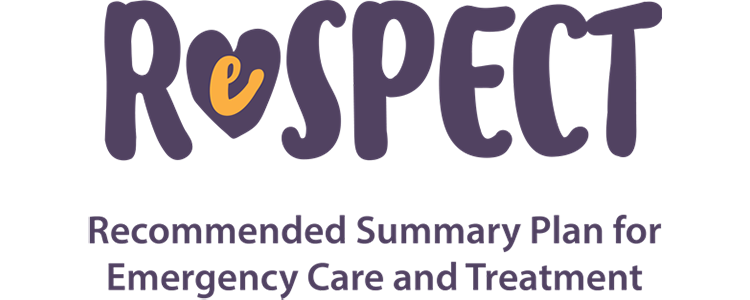ReSPECT – Planning future care in the event of an emergency
ReSPECT - planning future care in the event of an emergency
ReSPECT stands for Recommended Summary Plan for Emergency Care and Treatment. It is a plan that is made between you and your healthcare team to guide future decisions about medical treatment in the event of an emergency.
From 1st March 2023 the ReSPECT process and form will be launched across Suffolk and North East Essex which will gradually replace the East of England ‘Do not attempt cardiopulmonary resuscitation (DNACPR)’ form.
The aim of this change is to support a wider conversation between you and your healthcare team about your condition, your priorities for future care and what treatments may or may not be acceptable to you or helpful for you in the future.
A short film has been produced which goes through in more detail the importance of an advanced plan and what filling in a ReSPECT form involves. To watch it, please scroll to the bottom of this page.

Who is ReSPECT for?
This plan can be for anyone, but will have increasing relevance for people who have complex health needs, people who are likely to be nearing the end of their lives, and people who are at risk of sudden deterioration or cardiac arrest. Some people will want to record their care and treatment preferences for other reasons.
How does a ReSPECT plan work?
The plan is created through conversations between you and your health professionals. The plan stays with you and should be available immediately to health professionals called to help you in an emergency, whether you are at home or being cared for elsewhere. Professionals such as ambulance crews, out-of-hours doctors, care home staff and hospital staff will be better able to make quick decisions about how best to help you if they can see your ReSPECT plan in an emergency.
Who makes the recommendations?
The ReSPECT process is designed to support conversations between you and your health professionals (and other people important to you) in order to understand your priorities of care and use those to develop an agreed plan that records what types of care or treatment.
It is important to understand that the ReSPECT plan cannot be used to demand treatments that are not likely to benefit you and would not be offered.
In an emergency where you are not able to say what is important to you, clinical decisions will be made by health professionals trying to act in your best interests and for your benefit.
Why is this available?
In an emergency, health or care professionals may have to make rapid decisions about your treatment, and you may not be well enough to discuss what is important to you. This plan empowers you to guide them on what treatments you would or would not want to be considered for, and to have recorded those treatments that could be important or those that would not work for you. Many treatments that can be life-sustaining for some people carry a risk of causing harm, discomfort or loss of dignity. Many people choose not to accept that risk if the likelihood of benefit from treatment is small. This plan is to record your preferences and agreed realistic recommendations for emergency situations, whatever stage of life you are at.
How can I get a ReSPECT form?
Please speak to your lead health care professional such as your GP or your hospital consultant.
Further Information
If you would like further information please visit the Resuscitation Council website.